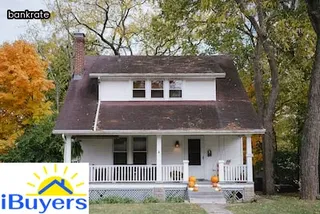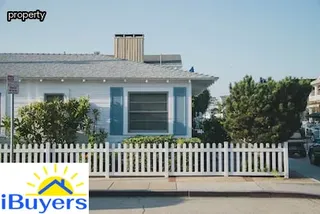When selling a home without the help of a Realtor®, it's important to be aware of closing costs. Closing costs are fees associated with the transfer of ownership, and are typically paid by the seller.
These can include title insurance, recording fees, transfer taxes, and other miscellaneous expenses. It's important to factor in these costs when setting your sale price so you don't end up losing money at closing.
Additionally, some states require sellers to provide buyers with a disclosure form which outlines any known defects in the house or property. Make sure you get an estimate from an attorney or title company to calculate what your total closing costs will be – this will help you set a realistic sales price and ensure that you won't be caught off guard on closing day.

Selling your home without a realtor offers many potential benefits, but it also comes with some drawbacks. On the plus side, not having to pay an agent’s commission can save you thousands of dollars, and you can also take full control of the sale process.
However, FSBO sellers tend to get a lower sale price due to lack of exposure, so it is important to make sure you are getting the most from your sale. Additionally, it may be difficult for those inexperienced in real estate transactions to navigate all of the paperwork and fees correctly.
Understanding closing costs is key if you want to successfully complete a transaction without an agent, as they can represent a significant portion of the profits from a sale. Knowing what fees are necessary and how much they will cost will help you budget accordingly and avoid any unpleasant surprises at the end of the process.
When selling a home without a realtor, the seller is typically responsible for covering the closing costs associated with the sale. These costs can include title insurance fees, recording fees, transfer taxes, and other miscellaneous expenses.
The seller may also be responsible for paying any applicable realtor fees if they use a flat fee realtor to help them with paperwork and process details. While these fees vary depending on the city and state, they usually amount to between 3-6% of the sale price of the home.
Sellers should take into account these potential fees when budgeting for their home sale. Additionally, buyers may negotiate with sellers to cover some or all of their closing costs in order to sweeten the deal and make it more attractive.

When selling a home without a realtor, it's important to understand the average closing costs for buyers and sellers. Closing costs are fees associated with the purchase and sale of a home, such as title insurance, escrow fees, document preparation fees, transfer taxes, recording fees, loan origination fees, and more.
These costs can vary depending on the state in which you live. In general, buyers typically pay between 2-5% of the home’s purchase price in closing costs while sellers may pay up to 10% of the sale price in closing costs.
Depending on where you live and how much your home is worth, these percentages can add up quickly. It is important to familiarize yourself with all the potential closing costs before putting your house on the market so you can make sure your budget allows for them.
Working with an experienced real estate attorney or other knowledgeable professional can help ensure that you have taken all necessary steps when it comes to completing a successful sale transaction without a realtor.
When selling a home without a realtor, it is important to be aware of closing costs and how to save money on them. Closing costs are fees charged by professionals, such as lawyers or title companies, who help facilitate the sale of a home.
Homeowners have several options to reduce or eliminate closing costs when selling their property without a realtor. Negotiating with the buyer is one way to minimize expenses; the seller can offer to pay some of the closing costs in exchange for a higher sale price.
Additionally, shopping around for service providers and comparing prices can help keep expenses low. Working with online resources is another great way to find local professionals at competitive rates.
Lastly, some lenders may provide credits or discounts that could help lower closing costs as well. Taking advantage of these strategies can help sellers save money when it comes time to close on the sale of their home.

When selling a home without the help of a realtor, it is important to consider closing costs. Closing costs vary depending on location and property type, but generally include standard charges such as title insurance, attorney fees, appraisal fees, transfer taxes, recording or filing fees, survey costs and prorated taxes.
Before signing an agreement to sell your home it is important to estimate these costs so you can determine your net proceeds from the sale. If you need assistance calculating your closing costs consult a local real estate attorney or accountant for advice.
Additionally, many online resources offer helpful tools that may help you make more informed decisions about what closing costs will be associated with the sale of your home. Knowing what to expect in terms of costs before entering into an agreement can save you time and money in the long run.
When buying or selling a home, closing costs are inevitable. However, by following certain strategies, it is possible to reduce the amount of these costs.
One way to achieve this is by asking for an itemized list of all fees you will be expected to pay and negotiating with the other party if applicable. Another strategy is to shop around for a lender who offers competitive rates and ask them about any potential discounts or rebates they may offer.
Additionally, if you are selling your home without a realtor, you can try to negotiate with your buyer on closing costs such as title insurance fees or attorney's fees. Finally, remember that some states have laws that require the seller and buyer of a home to split closing costs evenly, so check your local laws before beginning negotiations.

Closing costs when selling a house without an agent can add up quickly. It's important to be aware of all the costs associated with selling a home without a realtor before making a decision. Typically, the seller is responsible for paying for items such as title insurance, escrow fees, and transfer taxes.
Title insurance protects against any legal issues that could arise from previous owners of the property. Escrow fees cover the cost of preparing documents and closing the sale. Transfer taxes are typically paid by the seller in most states, but can also be split between buyer and seller depending on local laws.
Additionally, many sellers choose to hire an attorney to review paperwork and contracts to ensure everything is done correctly. Sellers should also factor in costs for marketing their property such as yard signs, advertising, or open houses. Additionally some states require sellers to provide disclosure forms outlining any known defects in the home or neighborhood that need to be disclosed prior to sale.
Finally, if a third party is used for services such as appraisals or inspections it may cost additional money upfront or out of proceeds at closing time. Knowing all these costs ahead of time will help ensure you get top dollar when selling your home without using an agent.
When selling a home without the help of a realtor, it is important to understand the fees and costs associated with closing. One of these costs is the buyer's agent commission, which can have an impact on your budget when selling a home without a realtor. The buyer's agent commission is typically
5 to 3 percent of the purchase price and is paid by the seller at closing. It is important to factor this cost into your budget when selling your home without a realtor in order to ensure that you are able to cover all closing costs. Depending on how much you are asking for your home, this cost could be substantial and may require additional consideration when planning your budget. Buyer’s agents may also charge additional fees such as administrative or transaction fees that should also be taken into account when estimating closing costs. Understanding how buyer’s agent commissions work can help you plan ahead and prepare a realistic budget that will cover all of your closing costs when selling a home without the assistance of a real estate professional.

When selling a home without the help of a realtor, it is important to be aware of the closing costs associated with the sale. While some costs are expected, such as transfer taxes, title insurance and loan origination fees, many sellers are surprised by the additional costs that can arise during the home sale process.
These unexpected expenses can make it difficult for homeowners to maximize their profits from their sale. To avoid such surprises, homeowners should become familiar with all of the applicable closing costs and how they could impact their bottom line when selling a home without a realtor.
This includes researching any potential taxes or fees that could apply to their situation as well as understanding who is responsible for paying them. Additionally, it is important to factor in any potential buyer concessions that may be necessary in order to complete a successful sale.
By taking these steps, homeowners can better protect themselves from any unanticipated expenses during the home sale process and ensure they maximize their profits once the sale has been finalized.
When selling your home without the help of a realtor, it is important to factor in all closing costs associated with the sale. Closing costs can include title insurance, attorney fees, and other recording fees.
The amount you will need to pay for closing costs will depend on the value of your home and where you are located. Additionally, you may need to pay for taxes related to the sale as well as any outstanding mortgages or liens on the property.
Furthermore, some states may require additional fees for transferring ownership of a property. Lastly, depending on your situation, there could also be capital gains taxes that need to be taken into consideration when calculating total expenses.
All in all, understanding how much you must pay in closing costs when selling your home without a realtor is essential in order to avoid surprises and make sure you have enough money set aside for the transaction.

When selling a home without a realtor, it is important to understand the closing costs associated with the process. Knowing what fees are involved and how to manage them can help you get the most out of your home sale transaction.
Before listing a home, research common closing costs like title insurance, inspection fees, loan payoff amounts and transfer taxes. These costs can vary depending on location, so be sure to budget for unexpected expenses that may arise.
Additionally, work with your state’s real estate commission to ensure you are compliant with all regulations associated with selling a home without an agent. Lastly, consider hiring an attorney or other professional to review documents related to the sale of your property; this will ensure everything is in order and protect you from potential issues down the line.
By taking these steps ahead of time, you can make sure that you maximize the value of your home sale transaction.
Closing costs may vary depending on whether you are the seller or the buyer, and the cost of closing a home without a realtor is no different. As a seller, you will be responsible for regular closing costs such as title insurance, recording fees, transfer taxes and other miscellaneous expenses.
In addition to these regular closing costs, you may also be subject to seller's closing costs which can include agent commissions, legal fees and other related expenses. While these additional costs can add up quickly when selling a home without an agent, they are necessary to ensure that all state and local laws are followed and that your rights as a seller are protected throughout the process.
Knowing the difference between regular closing costs and those associated with selling a home without an agent can help you make informed decisions when it comes time to sell your home.

The real estate market can be a confusing and intimidating space, but there are alternatives to enlisting the help of a real estate agent when selling your home. If you choose to go without a real estate agent, it is important to understand the potential closing costs associated with the transaction.
These include legal fees, taxes, title insurance, transfer taxes, loan origination fees and other minor expenses related to the sale. Knowing which costs are negotiable and which cannot be avoided is necessary for ensuring you get the most out of your home sale.
Furthermore, understanding how much money you need to set aside for closing costs prior to listing your home ensures that you will not be in financial distress if an emergency arises after the sale has been completed. It is also possible to negotiate certain closing costs with buyers as part of the purchase agreement terms.
Doing so may require additional research and paperwork but can save you thousands of dollars in up-front costs that would otherwise have gone towards your closing costs. Finally, there are several online resources available that offer step-by-step instructions on completing your own real estate transactions without a realtor or broker's assistance.
With these tools at hand, navigating the complex real estate market becomes much easier and more manageable.
Closing costs can be an unanticipated and often expensive part of selling a home without the services of a realtor. Many homeowners make costly mistakes that can increase the total amount due at closing, such as not obtaining proper disclosure documents from the buyer, failing to provide sufficient notice for required inspections, or not factoring in transfer taxes.
Another common mistake is underestimating how much time it takes to close a sale without a realtor's help. While the seller may save money on commissions by handling the sale themselves, they should also plan on spending more time dealing with paperwork and providing additional documentation to satisfy potential buyers.
Additionally, sellers should ensure they are aware of any pre-payment penalties associated with their mortgage before agreeing on payment terms with buyers, as this may result in extra fees at closing.

When preparing to buy or sell a home, it is important to understand the financial costs associated with the process. Closing costs are an often overlooked expense but one that can have a significant impact on your bottom line.
Buyers and sellers should be aware of all closing cost fees as they can vary greatly depending on the size and location of the home, among other factors. When selling a home without a realtor, there may be additional expenses that need to be considered such as marketing and advertising costs.
Additionally, transferring title from one party to another and other legal documents may require additional fees. It is essential for buyers and sellers alike to research these potential costs before entering into any agreement.
Doing so will help ensure you are adequately prepared financially for the process of buying or selling a home without a realtor.
Before you list your property for sale, it is important to ask yourself these key questions: How much will I owe in closing costs? Are there any hidden costs or fees that I should be aware of? Do I need a realtor in order to sell my home? What is the best way to minimize my closing costs and maximize my profits? Closing costs can add up quickly when selling a home without a realtor, so understanding them is essential. Knowing what you're getting into ahead of time can help you make informed decisions and ensure that you get the most out of your sale.
Additionally, understanding how closing costs work can help you anticipate and plan for the cost associated with selling your home without a realtor. It's also important to research potential hidden fees or other charges so that you won't be caught off guard at the last minute.
Knowing what to expect before listing your property for sale is key to having a successful and stress-free experience.

When buying or selling a home, it’s important to consider how your taxes will be affected. Smart strategies can help minimize your tax burden and ensure that you make the most of the sale or purchase.
For example, if you’re selling a home without a realtor, you may be able to reduce your closing costs by paying for some of the services yourself. You can also save money on taxes if you keep detailed records of all expenses related to the transaction.
Additionally, if you plan ahead and budget for any potential taxes that could be due when transferring ownership of the property, this can help to minimize your tax burden. Finally, familiarizing yourself with local tax laws and regulations can help ensure that you are taking full advantage of any available deductions or credits for which you may qualify.
Closing costs can be quite high when refinancing a home, but there are many factors that influence the amount. Some of these include the lender's fees, title search fees, appraisal fees, and taxes.
Lenders typically charge an origination fee to cover their administrative costs, which can range from 1% to 8% of the loan amount. Title search fees cover the cost of researching and verifying ownership information for your property.
Appraisal fees are required to determine the fair market value of your property. These fees may vary based on where you live and the type of property being refinanced.
Finally, taxes must be paid when closing on a refinance loan; this includes any transfer taxes or other local assessments that may be due in your area. When selling a home without a realtor, it is important to understand all closing costs so that you can budget accordingly and make informed decisions about your finances.
A: When buying a home without the help of a realtor, there are several closing costs you'll need to account for. These can include mortgage insurance, title search fees, appraisal fees, document preparation fees, loan origination fees, notary fees and recording fees.
A: When purchasing a home without the assistance of a realtor, common closing costs include mortgage origination fees, title insurance, home inspection fees, and other third-party fees.
A: When closing without a realtor, you will likely be responsible for paying any applicable state and/or county transfer taxes. Be sure to check with your local tax authority for more information.
A: Closing costs without a realtor typically include fees for title insurance, escrow or closing fees, prepaid interest and property taxes, transfer taxes, recording fees, and any other costs associated with the sale of the property.
A: Closing costs when buying a home without a realtor typically include the cost of hiring a real estate attorney, title insurance, and the cost of a home inspection.
A: Survey Fees are fees that cover the cost of having a surveyor visit the property to check for any discrepancies between the legal description and what is physically present on the property. These fees can be significant, so it is important to factor them in when budgeting for closing costs without a realtor.